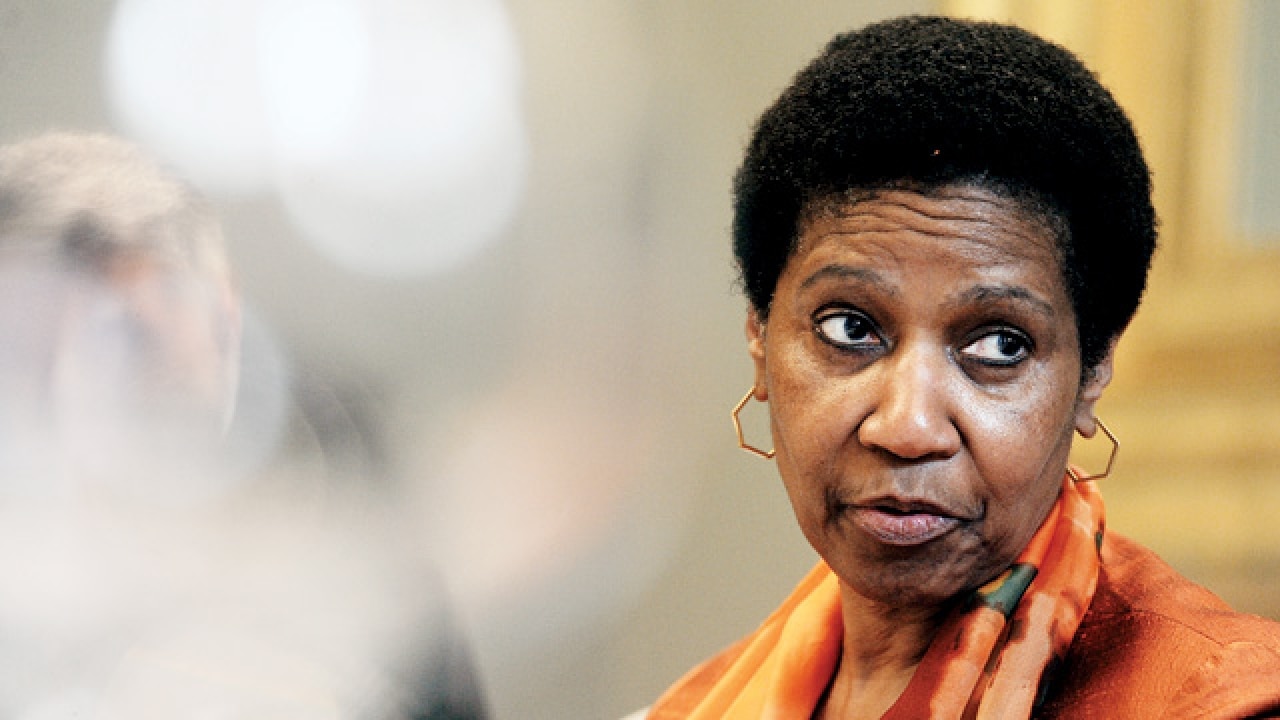
The link between women’s economic empowerment and ending violence against women, and the need for urgent and adequate investment in the twin themes is abundantly clear. This year, UN Women and our partners across the globe like - IMC here in India - are marking the 16 Days of Activism Against Gender-Based Violence (25 November – 10 December) under the theme of ‘Orange the World: Raise Money to End Violence against Women and Girls’. Several public events will try to galvanise global attention and action to end the pandemic of violence against women. From marches in Uganda, Serbia and Timor-Leste, to a public rally on motorbikes in Pakistan, to conference like the one I am attending in Mumbai, people will take to the streets to say no to violence, and iconic buildings will be lit up in campaign colour.The colour orange was chosen as it symbolises the bright and optimistic future free from violence against women and girls. A ‘Centre of Excellence for Women Entrepreneurs,’ is also being launched by the IMC in partnership with UN Women.
I don't want to claim I know the answer to all those whys. I'm also seeking answers like my boss, Secretary-General Ban Ki-Moon. But one thing we notice across countries is how stereotypes and norms that discriminate against women and have survived generation to generation are very hard to change.
In many countries like India, perpetrators tend to get away with it. This sends a wrong signal to them. We have been unable to demonstrate strongly enough how unacceptable this is. We just don't have enough leaders with zero tolerance for violence against women, who speak up, give voice to the issue and therefore set the tone of public discourse on the subject.
Events like these are also about creating possibilities and a platform to bring the few leaders who speak up together and amplify the voices that speak up for women's rights. Of course I can only belabour the role of media persons like you and media organisations like yours in taking what is being said here to the larger world outside in a way that the message of zero tolerance of violence and exploitation of women reaches everyone loud and clear.
But change has to start at home. It has to impact young people by working with both mothers and fathers, girls and boys, women and men. So we understand that the challenge ahead of us is very complex. Complex as it is, we are not discouraged since giving up on the struggle is not an option we have. And yes we may not have answers to all the whys right away but we are resolute about working on them systematically to arrive at answers. The only way to do that is working on strengthening all participants and stakeholders fighting gender inequality.
Yes. Let me at the outset agree that India, like other countries has a considerable way to to go. The way to do that is by supporting grassroots initiatives and organisations. We need to work with parents in families which are the last unit in society. That will mean going back to grassroots even in our approach. Because social media can never replace actual eyeball-to-eyeball contact. In countries like India on cannot emphasise the importance of organising in the old grassroots-style where we are not relying excessively on gadgetry and technology.
In the area of gender equality and our fight against violence against women, what our experience shows working is the involvement of communities. The police station, religious leaders, parents, teachers and the community leaders who the community looks up to come together and speak in one voice against any injustice to the girl child/women. They agree on what is unacceptable, what should happen to perpetrators. This kind of involvement can take an investment of nealry five years before results start showing. But when it does the effects are marvellous. We have the example of Uganda where this has been done successfully. In fact it works so well that we at UN Women share it with other countries so that they can be replicated with their own grassroots ground realities woven in. You know Uganda has seen the reduction of violence against women by 50% because of such painstaking concentrated efforts.
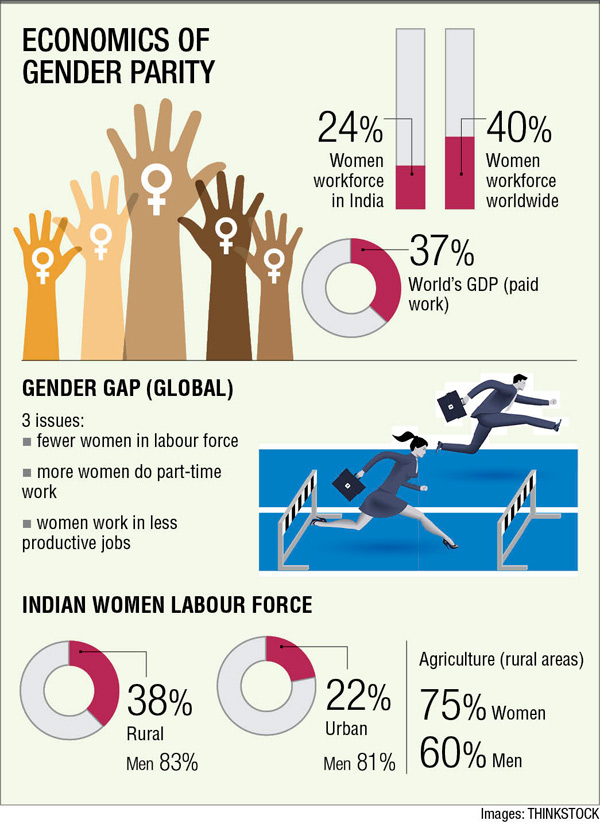
I think you have pockets in India where this is already working. Getting the women elected at the local bodies involved in doing this can and had shown remarkable results. They are seen as more effective in getting all the relevant stakeholders on board. Helping them with resources is of course important. We cannot leave them in the lurch, struggling with everything from finding resources and the emotional strength and resolve in taking this on, merely to local community units.
Many of the business and corporate leaders present at today's conference in Mumbai - in what is a very unique to India – already know how to and are working at the grassroots level. Many have gone into remote interior rural areas and invested in the most unorthodox initiatives, which often don't have anything to do with.their line of manufacturing/production. This is not seen in many countries. So I feel in many instances the will, networks and resources are already in place in India but we need to give this further encouragement to work with gender equality-based agendas.
Well that it is a concern, but I will not want to be entirely dismissive of income-generation related skilling since it can often put bread on the table and address food security issues among the extremely poor. Yet that's not enough. How can a woman bringing bread to the table go home to get beaten up or face sexual harassment at the workplace? We need women to work, feel economically independent and safe, be assertive in fighting harassment at the workplace, support their loved ones, feel empowered and have the freedom to walk out of an abusive relationship if they want.
This cannot be an either/or situation where the intervention is compartmentalised. The empowering gender related component is very important here and needs to be taken ahead along with skilling in a complete package. Yes it will require a lot of patience because there are no shortcuts to change in society. We need to arrive at a point where everyone feels appreciated.
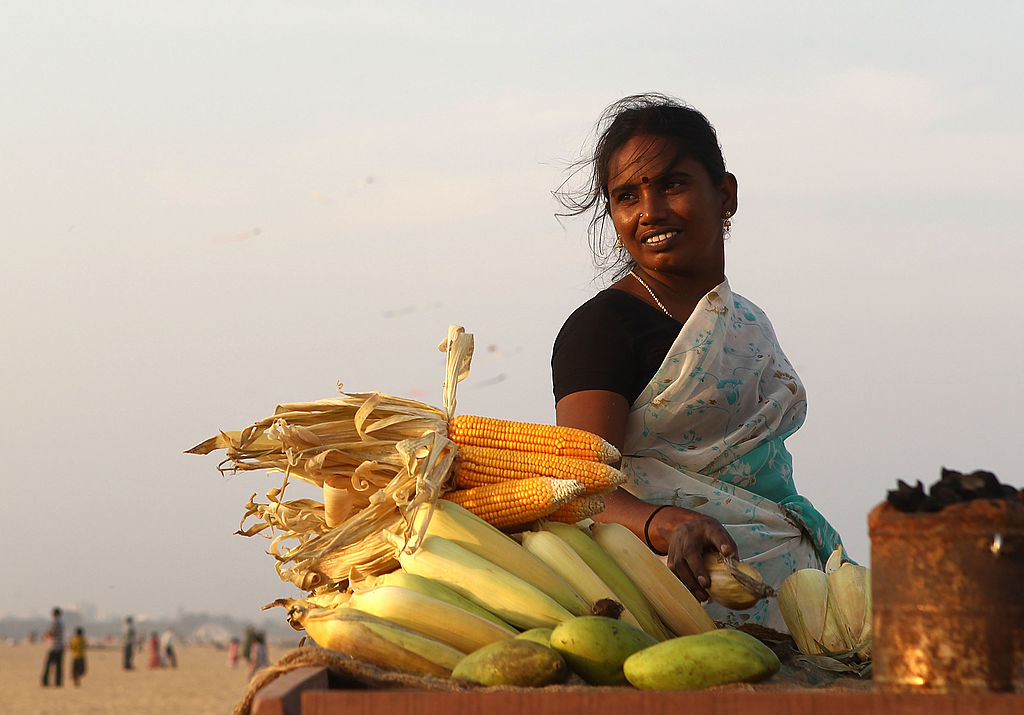
Getty images
Ignoring violence against women is a gross human rights violation yes but communities need to be made aware of the huge human costs involved. When we hold a woman back from reaching her full potential, we are holding back potential of the country. Women have silently, despite going unacknowledged for long, contributed to both the GDP and the resilience of the country. They are at the forefront of being the agents of change who help bring communities out of poverty sustainably. There are no short cuts to this. Women need to be empowered and they need to know how to be entrepreneurs and address livelihood concerns.
And women must be allowed the freedom to choose as a human being. Being forced into a marriage and given a skill set is not freedom. Women need to have the freedom to stay in school, to blossom, to be able to choose further education and a partner of their own liking who will love, care and cherish them.
The days of such excuses from the powerful are numbered. I think this is changing and will continue to change. The governments will be too embarrassed to not start changing their stand even though this (the old patriarchs) may often be unwilling. The fact that, in many countries, sexism can be criminalised means that it is very difficult to be a leader and public representative and be blatantly sexist.
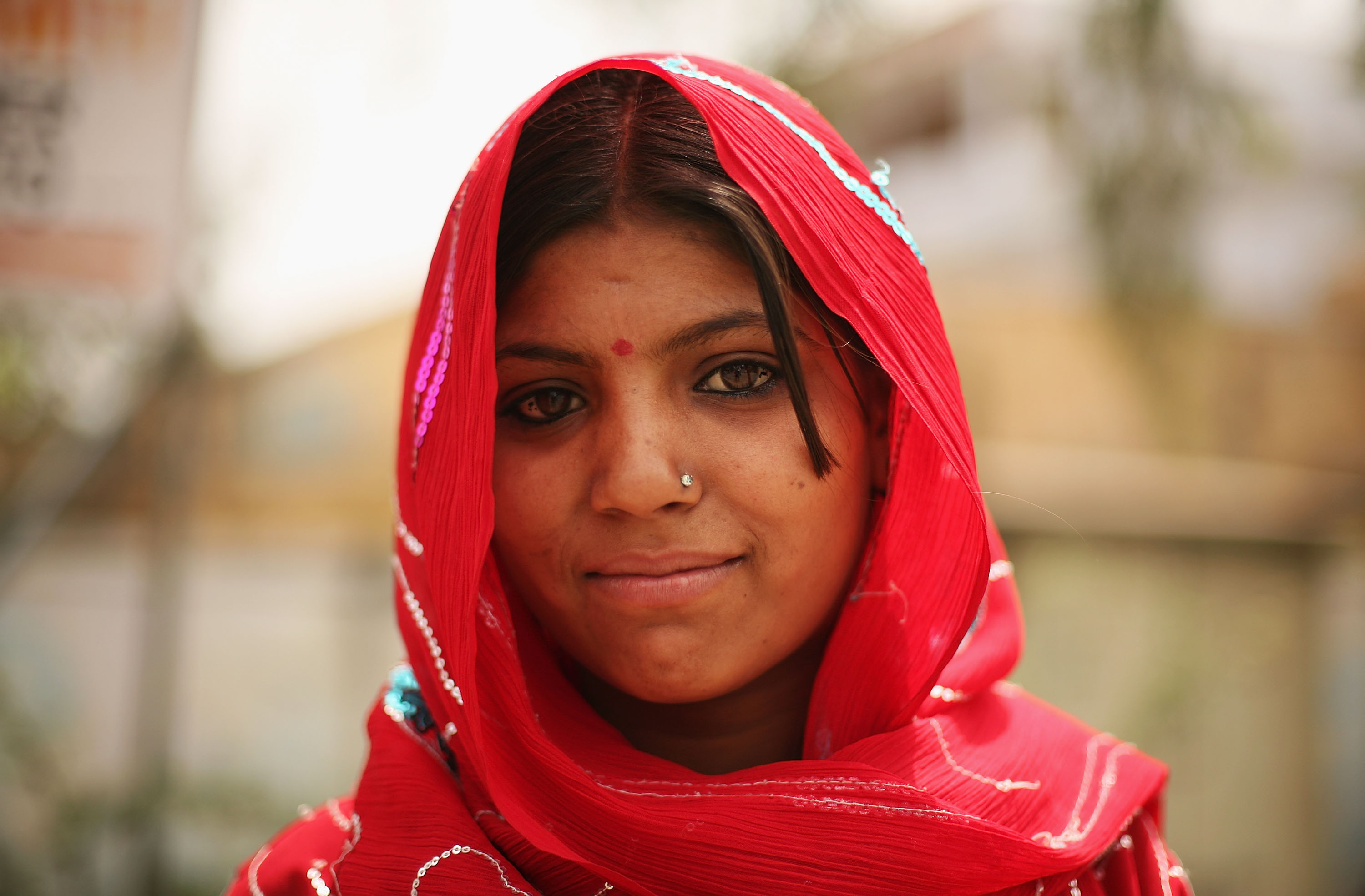
Getty images
I'll throw the ball back in your court. The media has a responsibility to address these issues and highlight them since they largely play out in the media. May be you guys need to introspect whether you are asking the right questions of certain people in a way that is required. This of course is making our work very difficult across the world. I admit everybody has a role to play here.
I think examples like the one you brought up show the heightened need for education and awareness on what is/is not acceptable when it comes to women. Many women are discouraged from getting into mainstream politics or running for high office because of this scenario. It can get really nasty, ugly, sexist and personal to a point where the woman is pushed into thinking, I don't need this. In some countries, this can actually take the form of death threats, attacks and has even led to killings.
I think we all need to think long and hard about the limits of civility and decency that are being crossed on public platforms. I think it is up to the media to mediate in these conversations and be the voice of conscience. That is your unique expertise and bearing in life and you must carry it.
(Smiles) As a part of the United Nations I'm not allowed to name any member states or their leaders negatively...
Anytime women's rights are not respected by ordinary men or men in authority, it is important for society to stand up and say no. It is even more important that other men stand up and say no. See when it comes to politics and elections people may elect whoever they want, but that does not mean we should blind ourselves to any unacceptable behaviour. We have a collective responsibility towards zero tolerance of violation of any woman's rights or disrespect of women irrespective of which country we are speaking of.
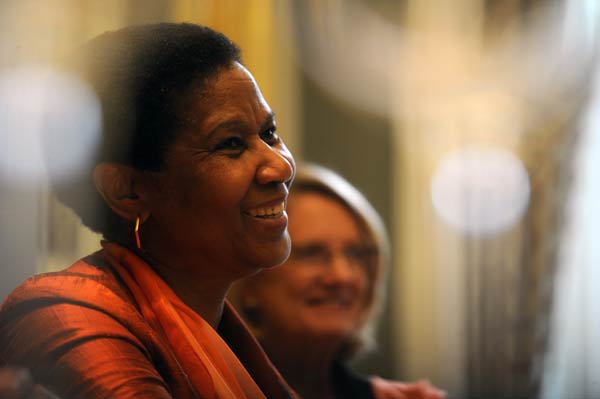
Phumzile Mlambo-Ngcuka (DNA/Fariha Farooqui)
We have a presence there and have been working with civil society groups. UN Women has always stood up for women victims anywhere in the world. We are deeply concerned over what is unfolding in Myanmar. But the problem over there is much larger than our current capacities. Having said that, we are working closely with our partners in monitoring the situation with mounting concern and trying to bring relief to victims and communities affected. But UN Women admits there is a much greater need for human rights groups to step up their focus and intervention in this region or in others like say Nigeria where the Boko Haram has heaped some of the worst violations on the girls and women there.
Let me give you the instance of a problem that UN Women is actively engaged with. That of child brides. This is true of some African nations and also some parts of Asia and India too. Child marriages happen in full view with communities even participating in the rituals/celebrations where parents of one family actually giving up a child to another family to take as a wife long before she both physically and psycho-socially outgrows her childhood. Acting against this is very important as it sets into motion a chain reaction of events which affect many generations of women to come.
While making this fight visible we should work with governments and NGOs but also engage with traditional institutions. In many countries like India there are organised traditional authority institutions; one needs to engage with them head-on because not all their members are backward thinking. If we actually win some over and they can become the inside voice in those institutions to advocate for a more gender-responsible approach.
Technology is a double edged sword. We can't throw it away because of its negatives but we have to recognise the attendant dangers that girls and women experience because of technology. We don't want our girls to be left out of the digital revolution, but we need to make them aware of how to recognise bullying, harassment or worse and also of mechanisms they can use to lodge complaints and bring the perpetrators to book. So it is a very complex challenge of being able to harness technology to bring good benefits to the larger majority but be very vocal about any abuse. We must also hold large technological domains responsible and ask them to put in place mechanisms to address any trauma women/girls face due to abuse on their platforms.
The Union Ministry of Women and Child Development in India is very actively engaged in taking strong action against any cyber violence against girls and women. They've asked for further know-how to make this effective and both UN Women and UNICEF are working closely with the ministry against cyber violence.
One needs to recognise that this is a field where dynamic changes are happening daily. Hackers/abusers are often ahead of law enforcers. So it can be very very challenging. We've seen some of the biggest countries' systems being hacked into. This leaves the little girl playing harmlessly online on a tab in the confines of her home very vulnerable. This means looking again at the family as a unit and more traditional intervention strategies with schools and caregivers to help raise their awareness on do's and don'ts which will keep their loved ones protected.
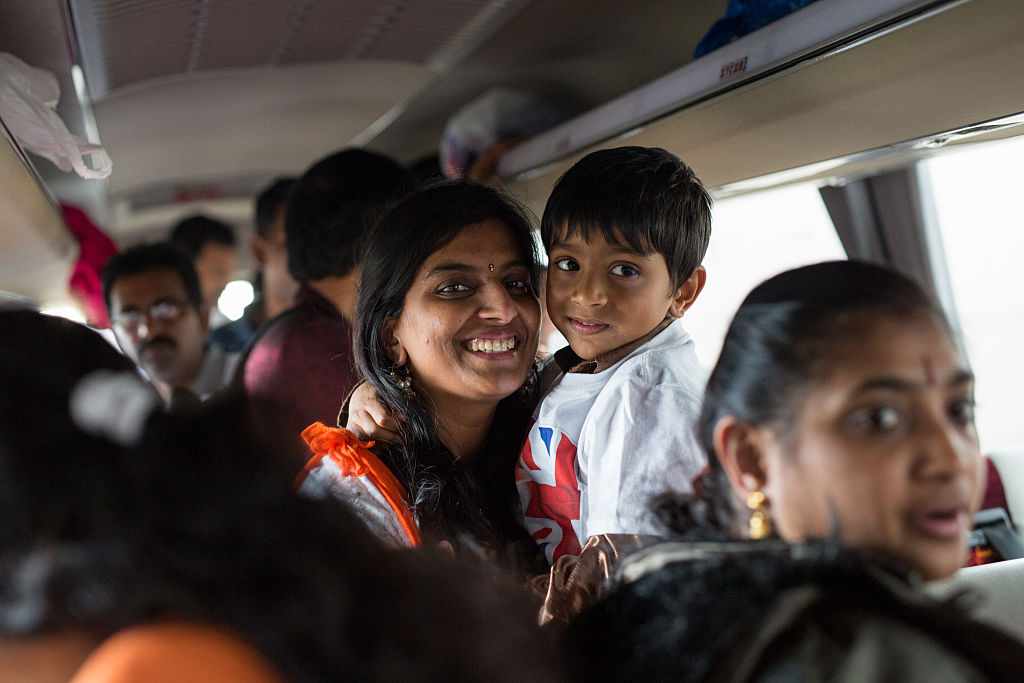
Getty Images
Gender inequality is one of the main reasons why we have not been able to stem this problem. We are hopeful that the new sustainable development goals adopted in 2015 will be able to address this issue given how a gender agenda has been woven into them. Early marriages and pregnancy before the girl's body is ready for it have been identified as the root of both infant and maternal mortality. Both African and South Asian nations need to work more closely to identify takeaways from each other, which will accelerate interventions.
This goes back to the problem you raised in your earlier question. I am confident all of this can be better addressed by keeping girls in schools and helping them pursue higher education. I would say education is the next best thing to a silver bullet. It may not be a panacea to all problems but it goes a really really long way to prevent many of the battles we have to cure, fight or invest in. It will drastically reduce many of the ills plaguing society.